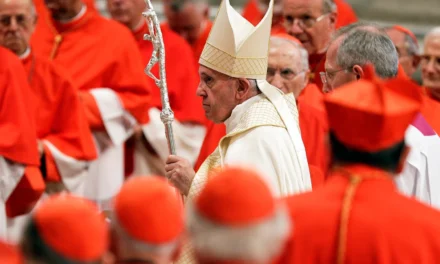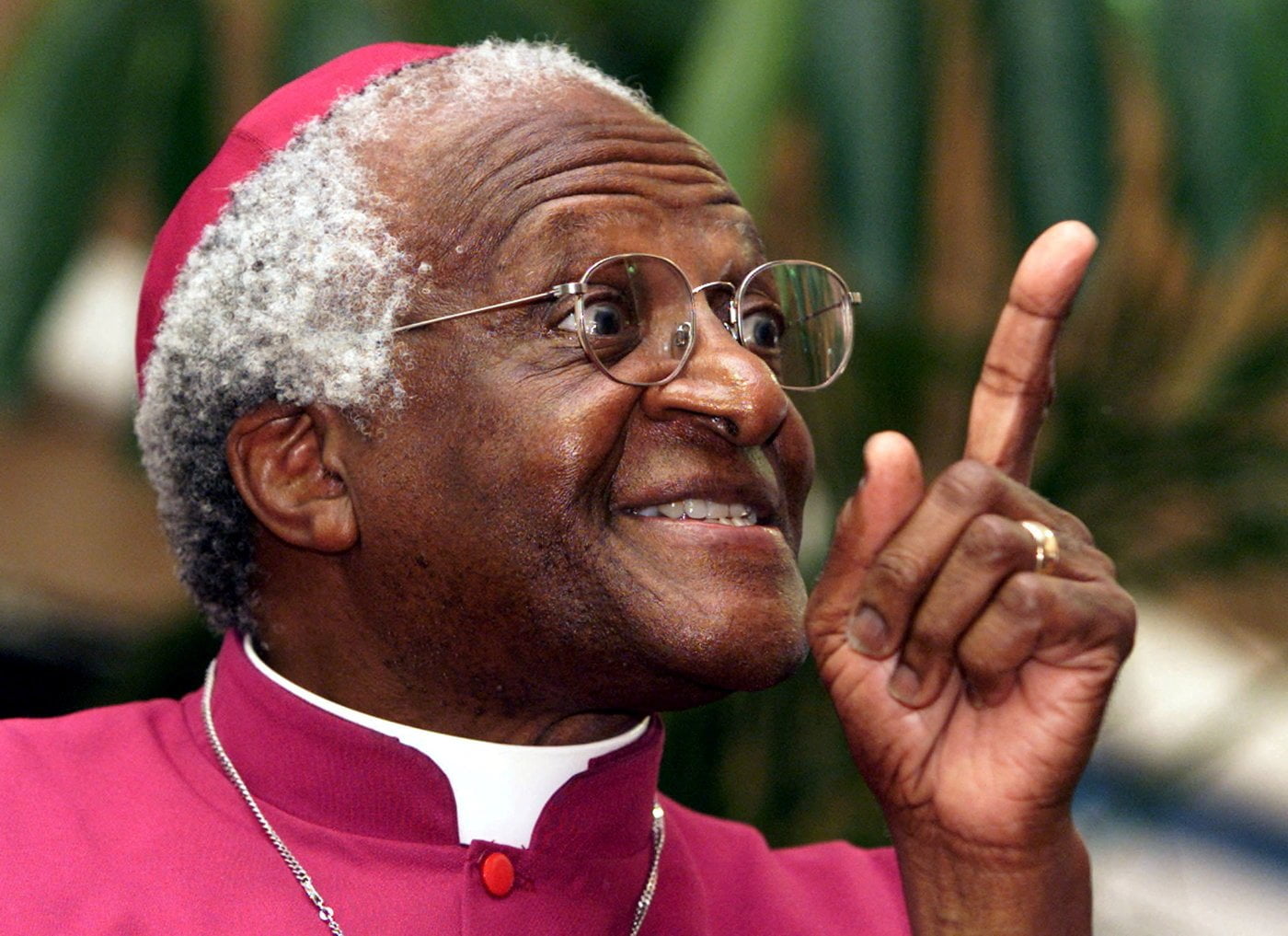It has been gathered by the research team of RECOWACERAO NEWS AGENCY, RECONA that following our cherished cultural heritage, the laity and clergy have recently as ever established Africa’s “vehement no” on Hot-button Topics of Women Deacons, LGBTQ. One of our Archbishops who has constituted a beacon of hope for the continent judging by his audacity has informed our crew that this our collective “NO” as a continent is not on the air rather this authentic “NO” is guided by Scripture and the universal Church Teachings.
The Archbishop of Cameroon’s Catholic Archdiocese of Bamenda has faulted claims that the Church in Africa is only influenced by culture when taking a position on controversial topics, especially those raised in the ongoing multi-year Synod on Synodality, which Pope Francis extended to 2024, with the first phase, 4-29 October 2023, having concluded with a 42-page summary report.
According to Archbishop Andrew Nkea Fuanya, Africa’s “vehement no” on hot-button topics such as Lesbian, Gay, Bisexual, Transgender, and Queer/Questioning (LGBTQ) outreach and the ordination of female Deacons was guided by Scripture and the teachings of the Catholic Church, and “not purely” the continent’s culture, which he said had been described as “inferior.”
In his presentation at the August 23 session of the ongoing weekly synodal palavers, Archbishop Nkea recalled the meetings that Africa’s delegates to the Synod on Synodality held before the first phase of the Synod in which he said participants spoke in one voice regarding topics that they picked up from Instrumentum Laboris, the working document for the Synod.
“When we went to the Synod, it was clear that Africa had to take responsibility for its own destiny. We knew we had to make our voice heard in the first phase of the Synod,” Archbishop Nkea said, adding that in making Africa’s voice heard, the delegates made it clear that the continent was “not talking purely from a cultural background.”
“Africa was talking from the background of the traditions of our fathers and from the background of the teachings of the Church,” he said at the event that the Pan-African Catholic Theology and Pastoral Network (PACTPAN) organized in collaboration with the Conference of Major Superiors of Africa and Madagascar (COMSAM).
The Camerounians Catholic Archbishop added, “In presenting our points at the Synod, therefore, we did not want to be seen as presenting points of Africa because of the culture from which we came. Our stand had nothing to do with culture; it was about fidelity to the truth; fidelity to what Christ taught. It was about fidelity to what the Apostles handed down to generations.”
He said that as African delegates prepare for the 2-29 October 2024 session in Rome, they will still seek to be guided both by the doctrine of the Church and Scripture.
“Africa is going as one voice to speak for the African people from two perspectives,” he said, and added, “We therefore do not buy the idea that people tell us that we are arguing from culture. And that we come from a culture that is still developing, and that is why we do not understand certain things.”
Addressing the organizers of the palavers that seek to deepen the understanding of the Synthesis Report, the vocal Catholic Archbishop said, “Theologians here, you must tell us whether the African brain is inferior when it comes to reflecting on African culture and civilization.”
The Local Ordinary of Bamenda, who doubles as the President of the National Episcopal Conference of Cameroon (NECC) emphasized that “theology is theology” and “argument is argument” regardless of cultural superiority.
He defended the position of Africa’s delegates to the Synod on Synodality on the question of “marriage of homosexuals”, which he said had come up in synodal conversations in Rome, adding, “Africa was not defending a cultural idea. Africa was defending the teaching that the Church has had for 2,000 years.”
“When we started discussing the idea of blessing homosexual unions, Africa’s position at the discussions was a vehement no,” Archbishop Nkea emphasized. He said that the arguments of the African Catholic Bishops were based on what the Bible says about sexual relationships between people of the same sex.
In relation to the issues of same-sex marriages, he said Africa has also “vehemently rejected” Fiducia Supplicans, the document which came out a couple of months after the first session of the Synodal gathering in Rome.
“We are going back to the second session with the same vehement rejection of that document,” he said of the declaration that the Vatican Dicastery for the Doctrine of Faith issued, permitting the blessing of “same-sex couples” and couples in other “irregular situations”.
On the question of the ordination of women, which is also one of the hot-button topics in the Synod on Synodality conversations, the Catholic Archbishop, who started his Episcopal Ministry in Cameroon’s Mamfe Diocese as Coadjutor Bishop in August 2013 said, “Our Church has a tradition.”
He said that one of the questions to which Africa said a vehement no in the ongoing Synod on Synodality is the use of “tent”, adding that in Africa, the Church is seen as a family of God.
“We come from a broken continent, a continent where everybody comes to do fishing, yet those who live in that continent have no fish to eat. It is a broken, battered continent. It is a continent which has been harassed and dejected, and yet, this continent sees tents only in the backdrop of when we are running around carrying boxes on our heads as refugees,” Archbishop Nkea said.
He continued, “We are not running as refugees in the Catholic Church, and therefore, tents for us have a very derogatory meaning. For us, tents mean refugees who are running, pursued by predators and those who want to steal our wealth. We rejected the tent.”
“Africa is a family. The Church remains a family of God, and we continue to push that idea of the Church as a family of God,” he said.
The Archbishop of Bamenda since February 2020 pointed out that the position of Africa on controversial issues in the ongoing Synod on Synodality has nothing to do with politics.
“We the Bishops and members who attended the synod are not looking at anything against the backdrop of creating an African Church,” he said, and added, “The Church is the Church of Christ. And I think we need to stand against politicians who tell us that it is time to create an African Church.”
The August 23 African palaver, the 12th weekly virtual conference that brings together African theologians, Clergy, women and men Religious, and Laity was organized under the theme, “Theological criteria and synodal methodologies as a basis for shared discernment of controversial doctrinal, pastoral and ethical issues.”
Archbishop Nkea gave the theme’s allocution, focusing on why Africa should speak with a clear voice on hot-button topics and controversial matters not only at the ongoing Synod on Synodality but beyond.
In a concept note that was shared with the media ahead of the August 23 palaver, organizers of the event said participants would “courageously address some of the contested moral issues that came up in the last two years since the synodal conversation began in Africa.”
- CATHOLIC ARCHBISHOP IN GHANA HAILS POPE LEO XIV AS GOD’S GIFT - 23 mai 2025
- POPE LEO XIV TO APPROVE CANONIZATIONS - 22 mai 2025
- THE EVOLUTION OF PAPAL TRANSPORTATION - 20 mai 2025







